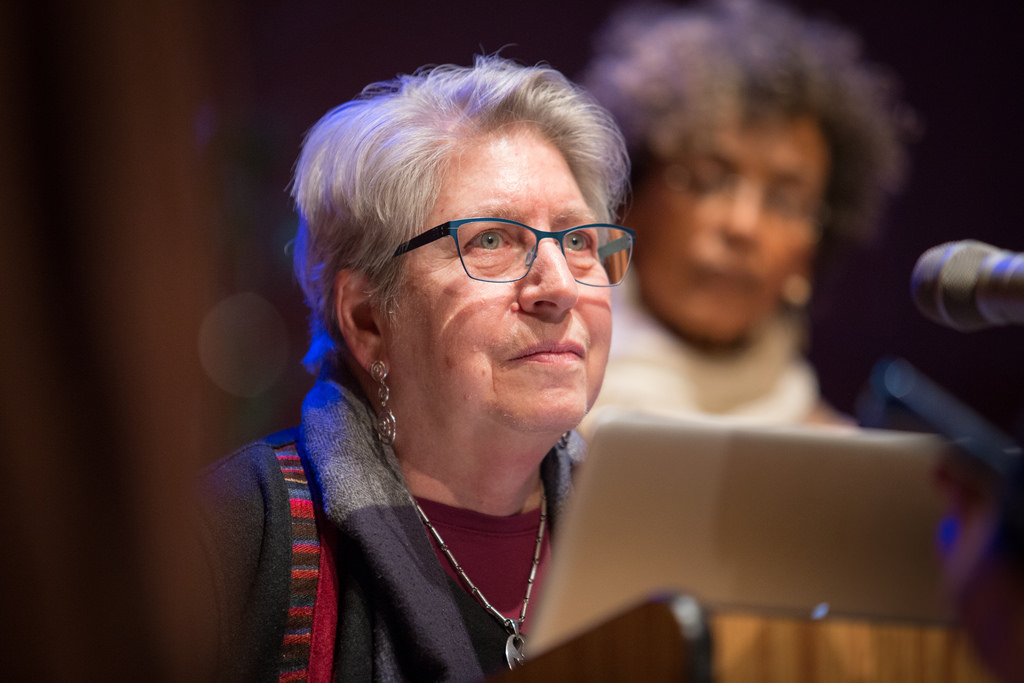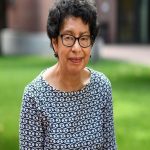Some time ago, a book entitled “The professors” (The 101 Most Dangerous Academics in America) written by “David Horowitz” was published in the United States. The subject of this book is the introduction of one hundred and one university professors whose crime was to speak about the Holocaust and the Jews in their classrooms and books. In addition to publishing this book, professors at other universities have been warned not to use their work because these people have crossed the red line. In general, when freedom is unlimited, it creates problems that will ultimately limit it. The following text introduces “Professor Bettina Aptheker”, one of the one hundred and one professors discussed by the author of the book.
Professor Bettina Aptheker
University of California, Santa Cruz
— Professor of Feminist Studies, University of California, Santa Cruz
— Describes her teaching philosophy as “revolutionary praxis.”
— Marxist-Feminist
Professor Bettina Aptheker is the daughter of a famous American Communist, the late Herbert Aptheker who, after the fall of the Soviet system (which both he and his daughter deeply regretted), was honored by the Columbia University history department and hired as a visiting law professor by the University of California (Berkeley) and as a history professor at several prestigious academic institutions.
Professor Bettina Aptheker is by her own proud admission both a Communist and a self-described “lesbian activist.” Her introductory course at UC Santa Cruz (UCSC) on feminism, which she has taught since 1980, turns Marx’s “historical materialism”—the idea that society progresses through successive stages from feudalism to capitalism to socialism into a theory of sexuality, and turns sexuality into a species of political consciousness-raising. One of Aptheker’s course syllabi describes lesbianism as the “highest stage of feminism” (an obvious homage to Lenin’s Imperialism: The Highest Stage of Capitalism). In other words, change in sexual orientation is an inevitable final stage in the development of the socially conscious individual. This is intended as serious analysis. Aptheker teaches the course to 400 students a year, and the lectures have actually been filmed at university expense as an important contribution to what the university describes as lesbian “herstory.”
Aptheker describes her teaching philosophy as a “revolutionary praxis.” The crux of this approach, she has said, is to subvert the traditional mission of the university by breaking down the distinction between subjective and objective truth, what Aptheker dubs “breaking down dualisms.” This approach is especially relevant to women’s studies, Aptheker notes, because it allows her to inject a “women-centered perspective” into the curriculum to correct what she claims was the “male-centered” bias of traditional university study. Aptheker has even based an entire course around her notion of a feminist pedagogy, called “Feminist Methods of Teaching.” Aptheker’s contribution to women’s studies also includes her marriage of radical politics to feminist sensibilities—all under the guise of an academic curriculum. A typical brainchild is Aptheker’s graduate-level course “Feminist/Radical Pedagogies.”
Although a full-time professor of feminist studies and history at the UCSC, Aptheker does not have a single work of reputable scholarship to her name. Most of her books, including Intimate Politics: Autobiography As Witness and The Morning Breaks: The Trial of Angela Davis, and If They Come in the Morning:Voices of Resistance” (co-authored with Angela Davis) are frankly political.
As for Aptheker’s ostensibly scholarly effort, Woman’s Legacy: Essays on Race, Sex, and Class in American History (1982), this amounts to little more than a review of Aptheker’s politics. Radical feminist poet Adrienne Rich has hailed the book as “feminist to its core.”
On the website RateMyProfessors.com, one of Aptheker’s less than happy students complains that she focuses “way too much on personal history—relied on pseudo-celebrity status to entertain the class.” According to the student, Aptheker wants everyone to know that she “met my life partner, Kate Miller, at a Holly Near Concert . . . in October 1979.”
The Santa Cruz campus is a fertile ground for Communist politics and its faculty also includes Professor Angela Davis,33 winner of a Lenin Peace Prize from the East German police state during the Cold War. Davis was expelled from the Communist Party in 1991 after the failed coup against Gorbachev. Communist Party head Gus Hall supported the coup, while she did not (making her part of the more “liberal” faction of the Party). With other expelled comrades she formed the “Committees of Correspondence,” an organization for themselves and other Gorbachev supporters.
A member of the antiwar movement during the sixties, Aptheker has not shed her reflexive opposition to U.S. military intervention. Appearing at an April 2003 UCSC faculty teach-in against the Iraq War, Aptheker proclaimed, “This war in Iraq is an obscenity.” Aptheker also claimed to see similarities between the political strategies of the United States under George W. Bush and those of Nazi-era Germany. “We should make no mistake between the kinds of diplomacy Hitler’s regime engaged in during the 1930s and the kinds of diplomacy the Bush administration has engaged in. There are direct parallels, and it’s very frightening,” said Aptheker. “Our agenda should be to overthrow Bush,” she informed UCSC students. Writing several months later, in the Summer 2003 issue of The Wave, the newsletter of the UCSC Women’s Department, Aptheker let loose with a yet more high-pitched attack on the Bush administration, accusing it of “[i]mplementing a proto-fascist program of racist abuse directed especially toward peoples of Arab heritage, while giving license to the worst forms of persecution of all peoples of color,” and declared her assurance that “the Washington clique promises to lead us further towards an abyss of unending imperial wars and economic catastrophe.”
Aptheker is similarly outspoken against Israel, and has labored to make the UCSC campus into a focal point of anti-Israel activism. Aptheker has signed an open letter to the U.S. government demanding the ending of all American aid to Israel. In 2002, she authored an article in The Wave pledging support for Palestinian terrorists, whom she euphemistically described as “anti-occupation activists.”
Research: John Perazzo










